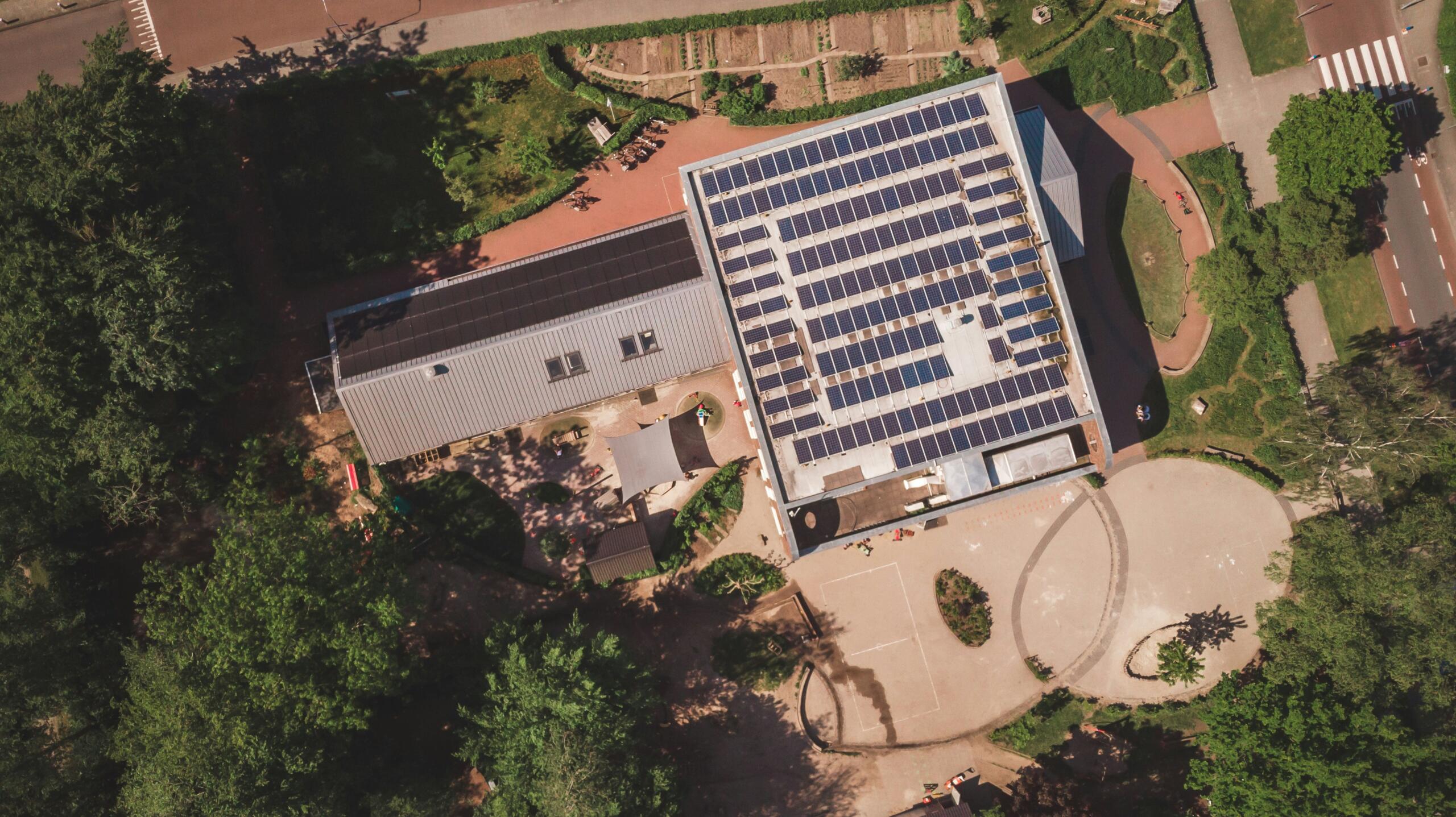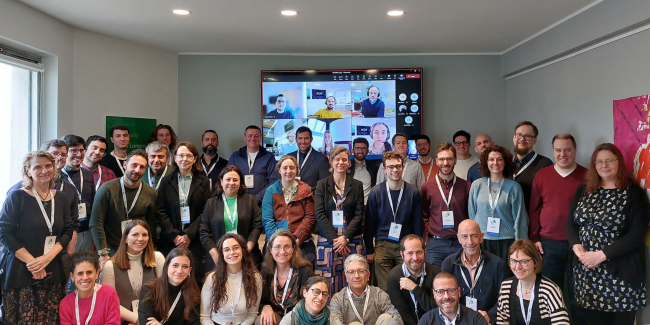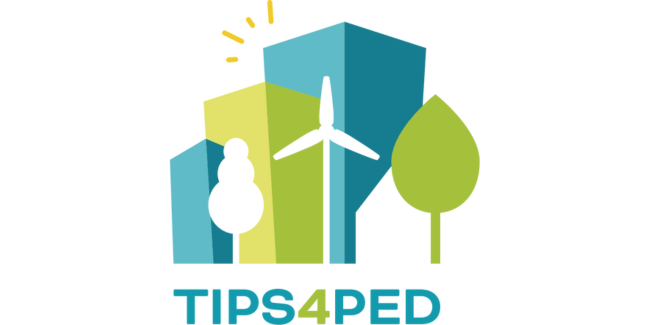TIPS4PED
To accelerate progress toward decarbonisation, the Horizon Europe project TIPS4PED will support municipalities in the implementation of Positive Energy Districts (PEDs). By developing an Integrated Assessment Platform (IAP) to facilitate decision-making, as well as designing and testing the real-world effectiveness and viability of a digital twin-based platform, TIPS4PED will help pave the way for emissions reductions across Europe.
Today, cities account for a substantial share of the human population's impact on the climate and environment. In the EU alone, they contribute to around 70% of CO2 emissions and primary energy consumption.
At the same time, however, cities are recognised as key drivers for sustainability transformations. As a result, a myriad of governmental initiatives have been launched within the past decade to bring about sustainable urbanisation in Europe. At the regional level, the European Green Deal aims to cut GHG emissions by 55% ahead of 2030, putting Europe on track to become the first climate neutral continent by 2050.
Positive energy districts: Positively effective?
For Europe to achieve these ambitious goals, innovation is needed at the local level, innovation is needed at the local level. Recently, Positive Energy Districts (PEDs) have come to the fore as key enablers for emission reductions in the building and mobility sectors. Indeed, PEDs could help to reduce the carbon emissions of urban districts by up to 85% in certain areas of Europe, which is why the EU plans to develop at least 100 PEDs by 2025.

A solar panel-equipped primary school in Nijkerk (NL). Credit: Remco Guijs, Unsplash
Government at all levels, however, faces significant obstacles with respect to the broad roll-out of such decarbonisation strategies, such as the lack of:
- adequate technical skills to identify the most appropriate technological solutions;
- robust monitoring and evaluation frameworks;
- a systemic approach to identify and integrate available financing and funding schemes;
- and effective multi-level governance, policy alignment, and integrated cross-sectoral planning approaches.
Moreover, despite citizen awareness and engagement being key to tackling climate neutrality, many Europeans remain poorly represented in the development and implementation of decarbonisation plans and strategies in cities.
How, then, can PEDs become an effective tool for local decarbonisation efforts across Europe?
Introducing TIPS4PED
Running from January 2024 to June 2027, TIPS4PED is a new Horizon Europe project aimed at supporting cities in the roll-out of PEDs.

The TIPS4ED team at the project's kickoff meeting.
Toward this goal, TIPS4PED will:
- develop an Integrated Assessment Platform (IAP) to facilitate decision-making at the municipal level;
- design, develop, and test the effectiveness and techno-economic viability of a digital twin-based platform in relevant urban environments;
- deliver evidence-based results aimed at increasing the environmental sustainability of cities and reducing operational costs;
- adopt a people-centric approach, engaging, training, and empowering citizens and potential stakeholders;
- and publish modules on the IAP to support municipalities with regard to the technical, social, financial, regulatory, and administrative elements of PED implementation.
The tools made available by TIPS4PED will be developed thanks to an ''end-users co-design approach,'' capable of providing constant feedback to the software development process.
From localised testing to scalable solutions

Yellow tram in Budapest. Credit: Arvydas Venckus, Unsplash
The TIPS4PED solutions will be tested in one Lighthouse City (Turin), where the IAP will be connected to a sensoring system for the realtime management of the assets. Replication studies will then be conducted in three Follower Cities, including two POLIS members:
The testing and replication phase will result in the creation of Digital Twins and Decarbonisation Roadmaps for four cities. Attuned to the varying market circumstances and environmental, safety, and regulatory aspects of PEDs, TIPS4PED will present easily reproducible technological solutions, which cities around Europe can leverage to deliver on the EU's 2030 decarbonisation goals.
Want to keep up with the latest news? Follow the project on X and LinkedIn.


